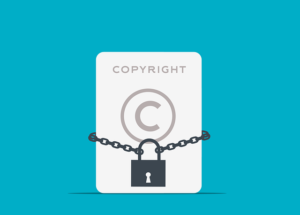


Terms and terminology can cause a lot of ruckus, wherever you find it. People tend to write stuff and use highly specific lingo which contains a lot of terminology that belongs in a certain domain, industry or profession.
For everybody viewing from the outside, without the knowledge of the industry or discipline, these terms will seem pretty confusing if not downright gibberish. For example, two of such terms would be copyright and copywriting. Are they the same or are there any differences between the two? There are a lot of differences between the two, even though they phonetically sound the same.
Following are the differences between copyright and copywriting.
 Copyright is just another name for an author’s right or intellectual property, as it is often called today. IP is a very important way of protecting one’s creation. This gives the author rights to copy and distribute their own creation for a limited time. This typically refers to works of art, music, literary work or educational work.
Copyright is just another name for an author’s right or intellectual property, as it is often called today. IP is a very important way of protecting one’s creation. This gives the author rights to copy and distribute their own creation for a limited time. This typically refers to works of art, music, literary work or educational work.
The duration of a copyright is often 50 to 100 years after the author’s death, after which it moves into the public domain, which makes it free to download and use, copy and redistribute.
Copyright can be applied to applications and expressions of an idea, but not an idea in itself. Copyright gives the author rights over reproduction, derivative works, public performances and even moral rights regarding their own work.
Intellectual property is very different from copywriting.
 Copywriting stands for writing sales copies, and is a term which details a job where people write advertisements, often known as copies or sales copies. Sales copies are used to increase brand awareness, or rather, directly influence customers to purchase a product or service, whatever is being advertised.
Copywriting stands for writing sales copies, and is a term which details a job where people write advertisements, often known as copies or sales copies. Sales copies are used to increase brand awareness, or rather, directly influence customers to purchase a product or service, whatever is being advertised.
Copywriting is often done by a single person, but they are closely working with artists, art directors and overall marketing managers and everybody involved in the process of marketing. A typical sales copy will have motivating and enticing text and plenty of graphical images which should display a product or service in a desirable way.
Copywriters can be freelancers or work for companies as a specific part of their marketing department. They can also do third-party marketing, which is the most common job for copywriters. There is often technical writing involved, but the job of a copywriter is to primarily write an enticing sales copy.
Both terms consist of the word copy, which has a different meaning in both cases. The first refers to the ability to copy and redistribute a product, where the word rights seal the deal and gives the author the rights to do so.
In the second case, the word copy refers to a sales copy, a marketing piece that is meant to entice customers to purchase a product or service.
The second part in the confusion stems from the right and write, both of which are pronounced the same way. When combined, phonetically, they sound the same.
This should clear up any confusion between copyright and copywriting.

Comments are closed.